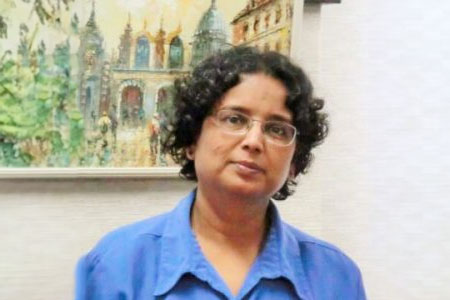| Meet the University of Wisconsin-Madison’s Padma Gopalan Professor of Materials Science & Engineering |
 |
Research area Developing functional polymeric materials and self-assembly strategies to address problems that reside at the interface of materials science, chemistry, chemical engineering and biology. The research group uses extensive organic/polymer synthesis capabilities, interface chemistry and physics, and expertise in thin-film and morphological characterization to solve problems in microelectronics, photonics, optoelectronics and biology.
What excites you about your work?
“I am trained as a polymer scientist and can design functional materials to match the targeted properties. However, identifying problems at the interface of disciplines with colleagues such as Michael Arnold, Luke Mawst and William Murphy that can really use my chemical intuition to guide polymeric materials design is what truly drives my research. These problems by nature are challenging and exciting to work on. One such recent example is my collaboration with Michael Arnold’s lab to develop the first commercially viable method for aligning carbon nanotubes to create high-performance semiconductors that can significantly outperform silicon and meet the aggressive needs of next-generation electronic devices.”
What do you hope to achieve?
“Many of the materials we have developed are already being used in the semiconductor industry to enable the fabrication of small features. The application profile of the aligned carbon nanotubes on a silicon wafer is also far-reaching, with potential impacts in next-generation logic chips, radio frequency amplifiers and beyond. I would love to see the impact of these technologies in the near future.”
Padma’s work with polymers and carbon nanotubes is prolific. These advanced materials are useful in so many different applications.
– Michael Carey, WARF, Licensing Manager
Want to learn more?
Michael Carey, [email protected], 608.960.9867